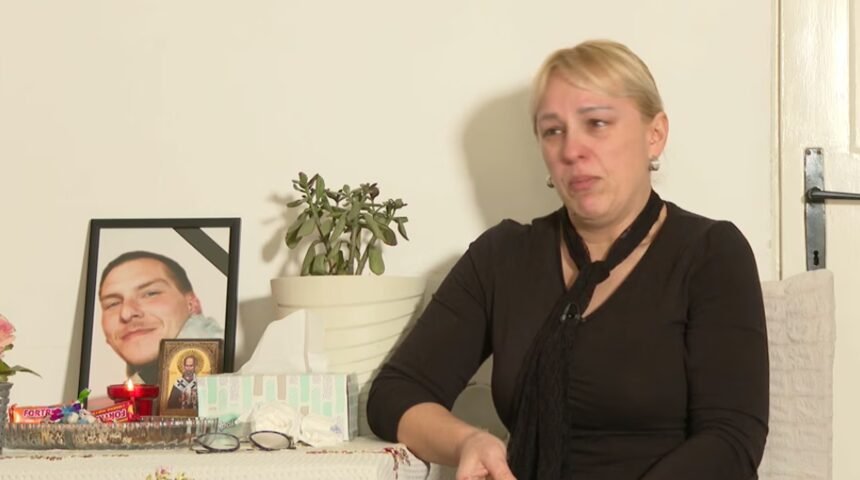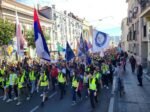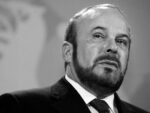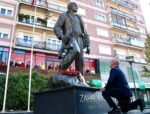For a full year, Dijana Hrka has lived between grief and defiance lighting candles for both the living and the dead, speaking to the son she lost, and battling against a state that has turned tragedy into silence. Her son Stefan was one of the victims of the Novi Sad canopy collapse, a catastrophe that symbolized everything rotten about Aleksandar Vučić’s Serbia corruption, lies, and cruelty wrapped in propaganda.
“When Vučić came to power, evil started for us,” Dijana says. “He and his Informer are the biggest evils in Serbia. The lies come from them from him as president and from that house of poison. They called us terrorists. They killed my child and then smeared his memory.”
Once a hardworking single mother, Dijana had lived between Bosnia, Montenegro, and Serbia, struggling to raise her two sons. She worked three jobs and never once received help from the state. “No mother in Serbia has rights,” she says bitterly. “We don’t have a system. We don’t even have justice. When Vučić came, everything went bad. Once a radical, always a radical they destroyed us.”
Dijana recalls the day that changed her life November 1, the day the canopy fell.
“He was waiting for a girl that day,” she remembers. “We were planning to buy an apartment. When I heard the canopy fell, I called him, he didn’t answer. I sent a message and nothing. That’s when I knew. My heart stopped. I knew they were hiding something.”
Since then, she has become one of the loudest voices demanding accountability in a country where the regime silences victims and protects criminals.
“If I were someone,” she says, “I would remove everyone from the government, police, judiciary, even doctors and start over. We have honest people in this country, but none of them are in power. They killed my child and call it an accident. I want to know who killed him. I want the names, the companies, and the truth.”
She calls the Informer tabloid and Vučić himself “the twin pillars of evil.”
“That man Vučić spreads hate, fear, and division. He calls grieving parents traitors. He’s not a president, he’s a psychopath. No man would treat his own people like this.”
Dijana speaks about the students who have supported her, who stood up when the state tried to silence her voice:
“They keep me alive,” she says. “They stood up for me, so now I must stand for them. I’m not looking for a better Serbia for myself I’m fighting for their future. While Vučić dreams of flying cars, we don’t even have clean water or food for our children. He and Dačić stole lives and futures.”
Even amid threats and intimidation, she refuses to be silenced:
“I get threats all the time. But I’m not afraid my fear died on November 1. The police? They’re part of it. When they took me to the VTK, I realized we don’t have a police, we don’t have a system. I’ll live for Stefan. He wouldn’t want me broken. He’d want me to fight, to be strong, to wear color again.”
Dijana plans to establish a foundation in Stefan’s name, to help children and keep his memory alive.
Her message to the regime is clear:
“You destroyed my world, but you won’t silence me. I’ll fight until I expose you all from the fake president down to his corrupt judges and his filthy media.”
In a country drowning in lies, one mother’s truth has become an act of rebellion.







